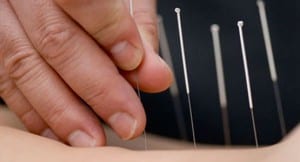Home » Allergy Relief » Acupuncture
Acupuncture
- Mar, 24, 2025
- Trenton Talbitzer
- Allergy Relief, Back Pain, Chiropractic, Internal Medicine
- No Comments.
Acupuncture
Acupuncture is a versatile treatment to handle a wide variety of internal and musculoskeletal conditions. Are you curious about acupuncture? Do you wonder if it is a good treatment option for you? Read on to discover more about acupuncture.
you? Read on to discover more about acupuncture.
What is acupuncture?
Acupuncture is a technique in which practitioners insert fine needles into the skin to treat health problems. The needles may be manipulated manually or stimulated with small electrical currents (electroacupuncture). Acupuncture has been in use in some form for at least 2,500 years. It originated from traditional Chinese medicine but has gained popularity worldwide since the 1970s.
What is acupuncture used for?
National survey data indicate that acupuncture is most commonly used for pain, such as back, joint, or neck pain. Acupuncture can also be used for internal issues such as abdominal pain, constipation, infertility, and smoking cessation to name a few.
How does acupuncture work scientifically?
How acupuncture works is not fully understood. However, there’s evidence that acupuncture may have effects on the nervous system, effects on other body tissues, and nonspecific (placebo) effects.
- Studies in animals and people, including studies that used imaging methods to see what’s happening in the brain, have shown that acupuncture may affect nervous system function. Depending on where the needles are inserted and/or stimulated it may have an excitation or sedative effect on nerves.
- Needles inserted along the spine have been shown to have an effect on cerebral spinal fluid flow with imaging.
- Acupuncture may have direct effects on the tissues where the needles are inserted. This type of effect has been seen in connective tissue and muscle trigger points.
- Acupuncture brings more blood to the area of needle insertion.
What does research show about the effectiveness of acupuncture for pain?
Research has shown that acupuncture may be helpful for several pain conditions, including back or neck pain, knee pain associated with osteoarthritis, and postoperative pain. It may also help relieve joint pain associated with the use of aromatase inhibitors, which are drugs used in people with breast cancer.
An analysis of data from 20 studies (6,376 participants) of people with painful conditions (back pain, osteoarthritis, neck pain, or headaches) showed that the beneficial effects of acupuncture continued for a year after the end of treatment for all conditions except neck pain.
What does research show about acupuncture for conditions other than pain?
In addition to pain conditions, acupuncture has also been studied for at least 50 other health problems. There is evidence that acupuncture may help relieve seasonal allergy symptoms, stress incontinence in women, and nausea and vomiting associated with cancer treatment. It may also help relieve symptoms and improve the quality of life in people with asthma, but it has not been shown to improve lung function. It has impacted smoking cessation when combined with other quitting practices.
Is acupuncture safe?
- Relatively few complications from using acupuncture have been reported. However, complications have resulted from use of nonsterile needles and improper delivery of treatments.
- When not delivered properly, acupuncture can cause serious adverse effects, including infections, punctured organs, and injury to the central nervous system.
- The U.S. Food and Drug Administration (FDA) regulates acupuncture needles as medical devices and requires that they be sterile and labeled for single use only.
Acupuncture is a very versatile treatment and can be used for a wide variety of conditions. Acupuncture impacts different people at different speeds. Some people are more sensitive to acupuncture and thus see a quicker response. For other people it may take several visits to build up to a treatment effect. Needle insertion is relatively painless for most people. Every once in a while a needle may sting, but that sensation typically goes away in 30 seconds. If you have a stubborn condition that will not go away, acupuncture may be the missing piece to help get your health back on track.
- Allergy Relief (5)
- Autoimmune (3)
- Back Pain (7)
- Chiropractic (9)
- Food Info (3)
- Health Tips (9)
- Internal Medicine (13)
- MLS Laser (5)
- Nutrition (3)
- Office Information (2)
- Recipes (4)
- Testimonials (6)

Leave a Comment